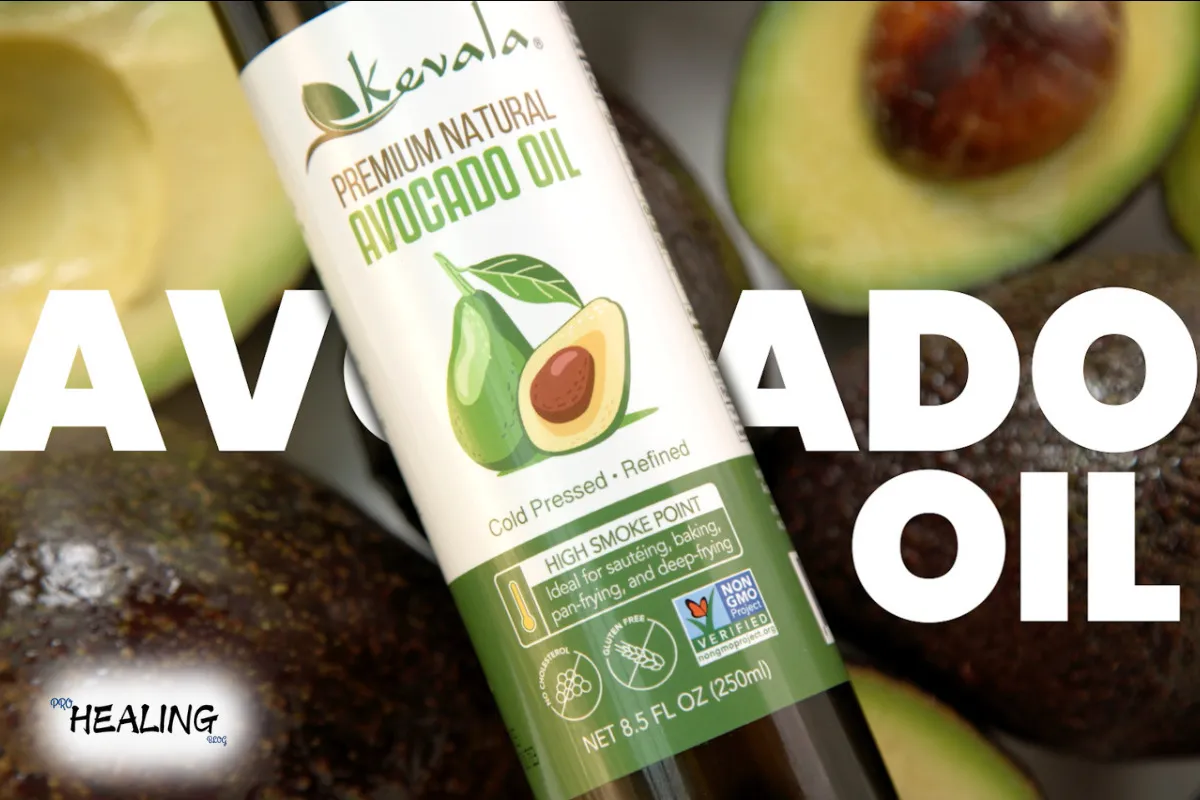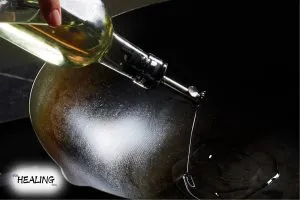Smoke point avocado oil is increasingly popular in kitchens for its exceptional heat stability and rich nutritional profile. The reason that it is neutral-flavored and most times operable as a cooking vessel makes it a new favorite with consumers searching for healthier fare. It is because it is full of smoke points that it’s most appropriate for hot-heat cooking. In this, we are going to describe how the avocado oils’ smoke point is applied, what it turns into when used in the cooking process, and how it stands in comparison to other oils applied in cooking. Through observation in science and application, we will offer evidence as to whether the name given to it is indeed so fitting.
Understanding Smoke Point in Cooking Oils
Smoke point is the temperature at which an oil starts to emit visible smoke upon heating. In this case, the fat in the oil starts to break down to create free radicals and harmful chemicals that are not safe for consumption. The smoke point, the higher the level of heat an oil can withstand without degrading or releasing harmful chemicals. For this reason, highly refined and high-smoke-point oils are used for frying, sautéing, and grilling.
Why Avocado Oil is Heat-Stable
Avocado oil is unique in that it has one of the highest smoke points among all the edible cooking oils available today. Refined avocado oil has a smoke point of approximately 520°F (271°C) and is extremely resistant to heat. It is significantly higher than olive oil, butter, and coconut oil. Its raw state also resists heat of about 375°F (190°C), which can be used in cooking at a medium level. Thus, stability of avocado oil results from its containing low amounts of polyunsaturated fats and high amounts of monounsaturated fats.
Main Advantages of Avocado Oil’s Smoke Point
- Decreases risk of toxic chemicals: High smoke point inhibits creation of toxic aldehydes when food is being cooked at high temperature.
- Best for grilling and frying: Grills or deep-fries steaks without charring and unwanted smoking.
- Healthiest nutrient preservation: Preserves healthy compounds such as lutein, antioxidants, and vitamin E during cooking.
- Minimum interference of flavor: Pure flavor never overpowers food flavor when used to cook under high heat.
- Less oxidative damages: Increased resistance to oxidation keeps the flavor and nutrients intact for long cooking times.
Avocado Oil vs. Other Popular Cooking Oils
To have an idea of how valuable avocado oil is, let us put its smoke point and advantage against other well-known cooking oils:
- Olive Oil (extra virgin): Lower smoke point (~375°F); drizzle and low-heat application.
- Coconut Oil : Smoke point approximately 350°F; has saturated fats but readily burns once heated.
- Canola Oil : Around ~400°F smoke point; processed and highly panned for its omega-6 fatty acids.
- Ghee or Clarified Butter : Smoke point of about 485°F; very intense flavor but exceedingly useful saturated fat content.
- Peanut Oil : About 450°F. Good for frying but much too overpowering and strong a flavor.
Limitations and Disadvantages of High-Temperature Cooking
The high smoke point of the avocado oil is a plus. But it has some limitation or disadvantage:
- Refined vs. unrefined: Refining does cause some of the nutrients to be lost in processing although the smoke point is improved.
- Cost factor: Avocado oil is costly in comparison with other cooking oils.
- Oxidation when exposed: Although heat-resistant, oil will spoil prematurely if not stored under proper conditions.
- Short of perfection every time: Its blandness is incompatible with those foods that would call for stronger flavors of oil.
- Environmental issues: The environmental problem of industrial avocado cultivation raises ethical questions to environmentally conscious consumers.
Avocado Oil’s Nutritional Benefits
Avocado oil’s not only heat-stable, by the way—it’s full of healthy fats and antioxidant nutrients. It’s got almost 70% oleic acid, a monounsaturated fat linked to lower inflammation and improved cardiovascular health. It’s got vitamin E and lutein, too, that your skin and eyes require. It gets absorbed amazingly well in the body due to its favorable bioavailability.
Scientific Research on Smoke Point and Oil Stability
Science also establishes that smoke point is not enough to classify an oil as safe for consumption or heat endurance. Scientists discovered that monounsaturated oil-concentrated oils such as avocado oil had greater oxidation resistance than polyunsaturated oil-concentrated oils. Even under constant heat, avocado oil still retains its integrity and quality for a very long period of time longer than low-quality oils.
Healing Herbs and Medicinal Plants List: Nature’s Remedies
Consumer Misconceptions and Marketing Hype
There is also a certain cynicism regarding high smoke point oils, at times from marketing. There are a great number of consumers who believe that high numbers of smoke points must be good for their bodies. However, there are also some other things such as oil processing, fatty acid content, and antioxidant concentration that come into play. Pragmatic experimentation shows that avocado oil fares well on all these measures but it is no magic bullet.
The Bottom Line: Is Avocado Oil Worth It?
Avocado oil is a home run in the kitchen today with its amazing versatility and resistance to heat. Its perfect smoke point makes it the go-to choice for professional chefs and home cooks who require consistent performance. But don’t leave out consideration of price, potential environmental expense, and storage issues. Used responsibly, avocado oil is a healthy, premium cooking oil.
Conclusion
The nutritional value of avocado oil is not lost and will hold up well to generating unwanted chemicals at its high smoke point to make it good enough for cooking at high heat. Frying, baking, or whatever, the oil holds the grade without losing wanted nutrients or producing unwanted substances. It is not for every body, however, and consideration should be given in the process of deciding between refined and unrefined varieties, source, and price. For such a consumer who craves both culinary ability and nutritional perfection, avocado oil is an expensive but good option







